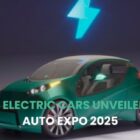The truth is that people these days have realized the kind of negative impact that pollution has had on the overall environment. Natural calamities can be seen widespread across the globe, something nature is venting out. It is high time that the common people support their respective governments in the cause to protect the planet and the future of mankind! Controlling pollution is one of the most important steps!
Going the EV way
Fossil fuel-run vehicles like petrol and diesel had ruled the roads during the last century. But now, it is slowly giving way to electric vehicles (EVs) that are designed to be battery-operated. EV vehicles are considered to be quite safe as they do not use fossil fuels, thus not emitting those harmful toxic gases. With time, these vehicles have been modified to support the growing needs and demands of the common people.
EV charging station
EV vehicles are getting popular not only in developed but also in developing countries like India. The EV charging station is regarded to be equipment designed to connect an EV with a reliable electricity source. The purpose is to recharge plug-in hybrids, neighborhood EVs, and electric cars. A few charging stations also are fitted with advanced features like network connectivity, cellular capability, and Smart metering while others are found to be more basic.
Other things about EV charging stations
Such stations are also referred to as EV supply equipment or EVSE short. You can find privately operated electriva charging stations at municipal parking locations or retail shopping centers and other locations in many parts of Delhi and its suburbs. Such stations offer special connectors to conform to the different standard types of electric charging connectors. Owners will need to charge their EV vehicle and ensure it runs smoothly.
Charging speeds
EVSE of different types offers varying speeds of charging.
- Level 1 charging stations: They are found to use a 120 V, AC (Alternating current) plug. Also will be needed a dedicated circuit that offers a range of approximately 5 miles for every charging hour.
- Level 2 charging stations: They charge through an AC plug, 240V, and require the installation of public or home charging equipment. For every charging hour, they offer a range of 10-20 miles. These are the most commonly used chargers, charging at the same rate as that of a home system.
- Level 3 chargers: They are also called DC fast chargers. It uses DC (Direct Current) plug and 480V. It bypasses the onboard charger while providing the battery with DC electricity through a special charging port. For every 10 minutes, such chargers can offer a range of about 40 miles, however, not found compatible with every type of vehicle.
Meeting demands
The fact is that the demand for publicly available charging stations is growing at a fast pace with the increasing number of EVs on Indian roads. Hence, the need for equipment felt that offers and supports faster charging especially at higher voltages. This is a current something not accessible currently with residential EVSE. Ev charger in Delhi is designed to provide quick charging facilities to all types of EV vehicles, thus reducing considerably waiting times.



